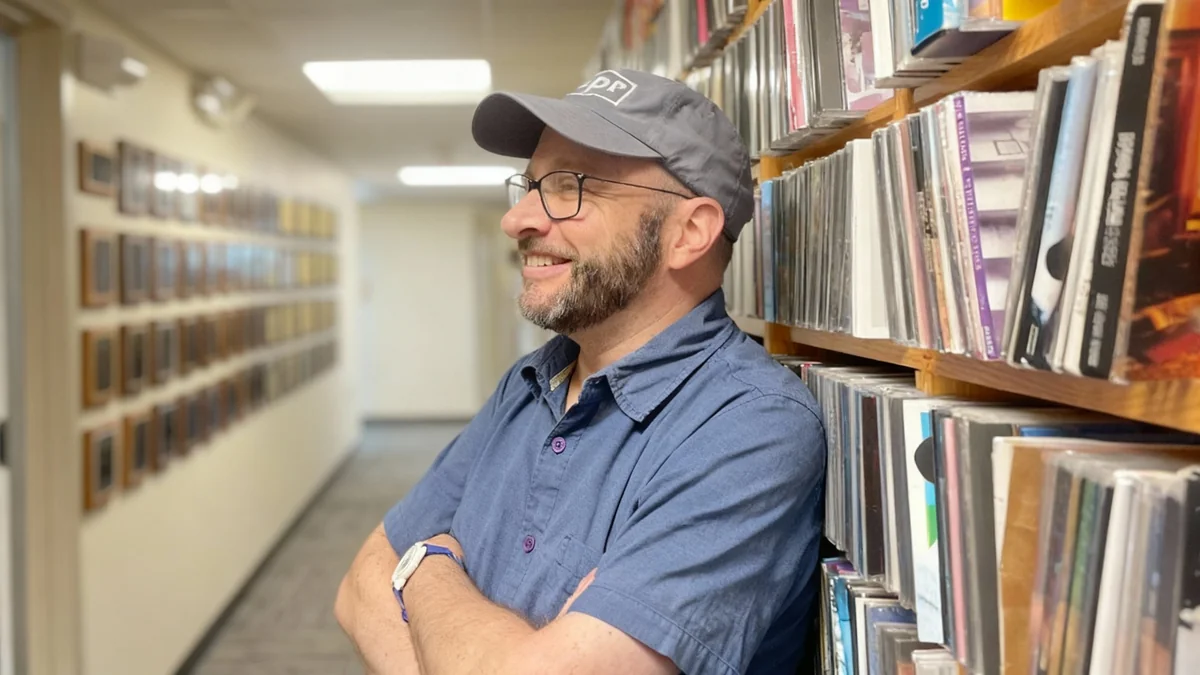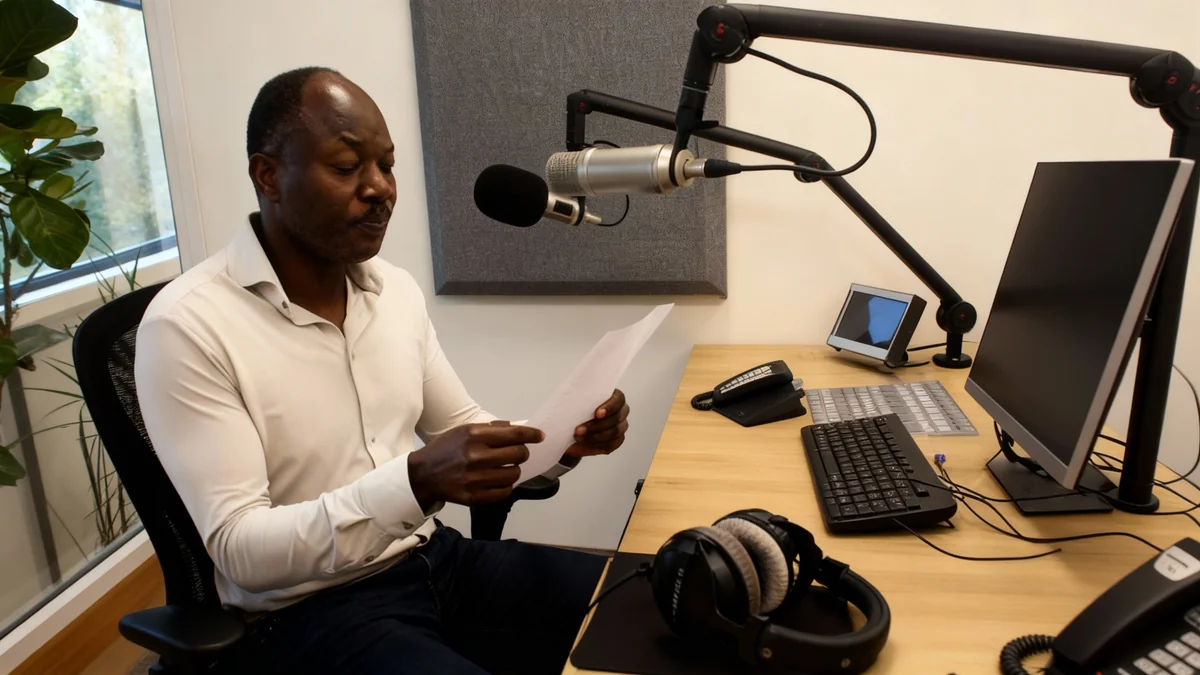Cleveland State University (CSU) has transferred the operational control of its student radio station, WCSB 89.3, to Ideastream Public Media. This move, finalized on October 3, involved no direct financial payment from Ideastream to CSU for the station's operations. However, the agreement includes a seat for CSU President Laura Bloomberg on Ideastream's Board of Trustees. The university will retain the Federal Communications Commission (FCC) license for WCSB 89.3 but will no longer bear the costs for equipment maintenance and repairs.
Key Takeaways
- CSU transferred WCSB 89.3 operations to Ideastream without direct payment.
- CSU President Laura Bloomberg gained a seat on Ideastream's Board.
- Ideastream is now responsible for station equipment costs and future capital investments.
- WCSB 89.3 transitioned to JazzNEO, a 24/7 jazz format.
- The agreement includes student opportunities and promotional announcements for CSU.
Operational Shift and New Programming
The transfer means a significant change for the station's programming. WCSB 89.3, which previously offered a diverse range of music and talk content managed by students and community members, is now JazzNEO. This new format broadcasts jazz music continuously. JazzNEO was previously available only as an HD digital channel.
The operational change occurred swiftly. On October 3, at 11 a.m., the station's signal stopped originating from the WCSB Broadcast Operations Center at the Cole Center on Chester Avenue. It immediately began broadcasting from Ideastream’s studio located in Cleveland’s Idea Center on Euclid Avenue. This rapid change is referred to as a "flash cut" in the documents.
Station Transformation
The analog signal of WCSB 89.3 is now dedicated to 24/7 jazz programming as JazzNEO. Before this change, JazzNEO operated solely as an HD channel. The previous WCSB offered a wide range of genres and talk shows.
Terms of the Agreement
Cleveland.com | The Plain Dealer obtained two key documents outlining the terms of this deal: a Program and Service Operating Agreement and a Memorandum of Understanding. These documents were signed by CSU President Laura Bloomberg and Ideastream Public Media President and CEO Kevin Martin on October 3, the day the transfer became effective.
Under the terms, Ideastream will cover all operational costs. This includes salaries, Ohio Bureau of Workers’ Compensation payments, and other compensation for staff working at the jazz station. Ideastream is also responsible for the expenses related to program acquisition and production. CSU will receive some publicity through mandated promotional announcements on the station.
"Ideastream will have the right to purchase the Station, including all the assets used or useful in the operation thereof, by matching any bona fide offer received by (CSU) from a third party that is acceptable to (CSU)," states the Program Service and Operating Agreement.
The initial term of the agreement is eight years. It can be automatically renewed for two additional five-year periods. To prevent renewal, either party must provide written notice at least 18 months before the current term expires. The documents also grant Ideastream the option to purchase the station at any point during the agreement term and up to one year after its expiration.
Purchase Option Details
If CSU receives an offer to buy the station from a third party, it must notify Ideastream within 30 days. This notification, called an Offer Notice, must include the identity of the offeror and the terms of the offer. Ideastream then has 60 days to decide if it will match the offer. A valid acceptance from Ideastream requires an earnest money deposit if specified in the original offer. If Ideastream matches the offer and the FCC approves, CSU will sell the station to Ideastream.
Student Opportunities and Public Relations
A point of contention surrounding the transfer has been the impact on student involvement. Students and community members have protested the decision, expressing concerns about the loss of the student- and community-run format.
CSU has stated that the new arrangement will still provide opportunities for students through Ideastream. The Memorandum of Understanding addresses this, emphasizing that Ideastream will prioritize internships and projects for CSU students. These opportunities are intended for students enrolled in CSU’s School of Communication and other colleges within the university.
- Paid and For-Credit Internships: Ideastream commits to offering these opportunities.
- Classroom-Level Projects: Students can participate in projects designed to enhance their skills.
- Diverse Skill Development: Opportunities will cover journalism, television and radio production, marketing, and graphic design.
However, the agreements do not specify the exact number of internships or job placements that will be available each semester or over the agreement's duration. This lack of specific figures has contributed to some of the community's concerns.
Beyond student engagement, the agreement includes a significant promotional component for CSU. Over the next eight years, Ideastream is required to air approximately 1,000 announcements recognizing CSU as the station's licensee and underwriter. These announcements will appear on WCSB (JazzNEO), classical station WCLV, and television station WVIZ.
An additional 1,000 joint messages from Ideastream and CSU will be broadcast. These messages will highlight their collaborative strategic efforts. CSU’s film school can produce this promotional content with guidance from Ideastream staff. Other joint promotional activities may involve Ideastream broadcasting work by CSU music students and faculty on air or across digital and social media platforms.
Background and Controversy
Planning for this transfer began several weeks before the October 3 switch. However, details surrounding these preliminary discussions have been limited. When Cleveland.com | The Plain Dealer requested all correspondence between CSU and Ideastream representatives regarding the station discussions, CSU’s legal department denied the request. The university cited the request as "overly broad and ambiguous." Only after a revised records request were the two key documents provided.
The decision to transfer operations has been met with considerable opposition. Students and other community members have organized protests against the change. They argue that the shift from a student- and community-run station to a jazz-only format removes a vital platform for diverse voices and student media experience.
CSU maintains that the collaboration with Ideastream will still offer valuable learning experiences. They suggest that the professional environment of Ideastream will provide students with opportunities to develop skills relevant to the broader broadcast workforce. The university’s leadership views this as a strategic move to ensure the station's long-term viability and professional management.
The controversy highlights the tension between institutional operational decisions and community expectations for university-affiliated resources. The long-term impact on student media at CSU and the local broadcasting landscape remains a subject of ongoing discussion.




